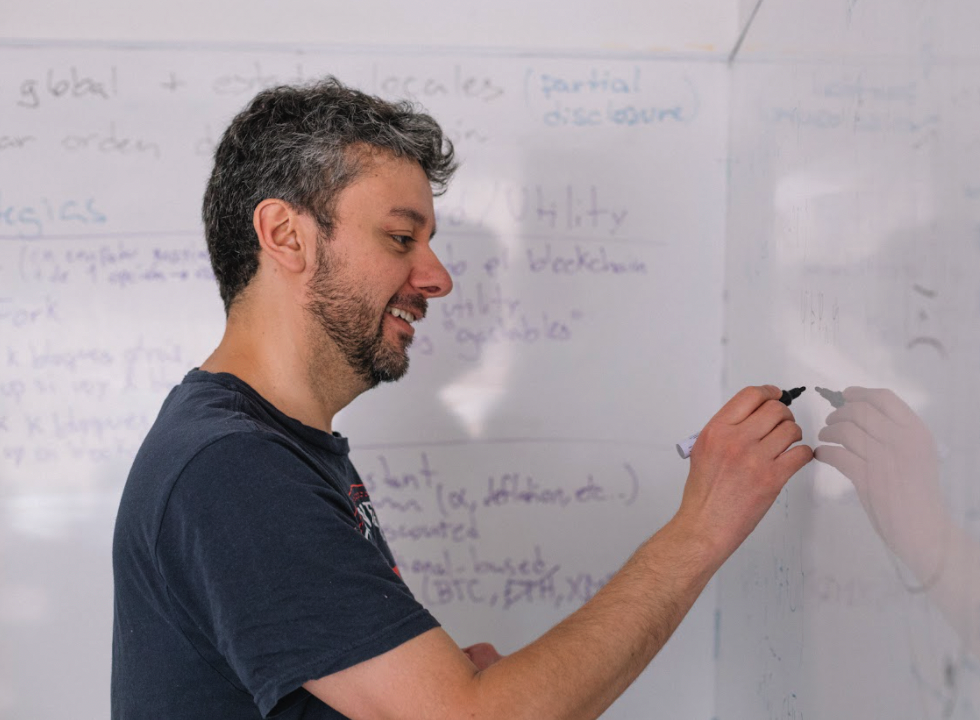UC honors Marcelo Arenas for his trajectory
August, 2023. A recognition to the academic contribution Universidad Católica de Chile is awarding a distinction to more than a hundredacademicsof the Pontificia Universidad Católica de Chile who have completed between 25 and 50 years of outstanding work.
One of these awards went to Marcelo Arenas, former director and currently a researcher at the Millennium Institute Foundational Research on Data, and a member of the Department of Computer Science and the Institute of Computational Mathematics of the Faculty of Engineering of the P. Universidad de Chile.
This ceremony was held in the Juan Francisco Fresno Hall of Casa Central and was led by Rector Ignacio Sánchez, who valued the commitment and outstanding work of professors who have dedicated an important part of their professional life and intellect to contribute to the country through teaching and research, and in the formation of today's and tomorrow's professionals.

Marcelo Arenas holds a Ph.D. in Computer Science from the University of Toronto (Canada) and his areas of interest are data management, applications of logic in computer science and the semantic web. At the end of 2021 he received the recognition of "Distinguished Fellow" by the prestigious Association for Computing Machinery (ACM), the world's largest scientific and educational computing society. Recipients of this distinction are selected for their contributions in three categories: education, engineering and science. Marcelo Arenas was selected in the latter category, "For Outstanding Scientific Contributions to Computing".
Shortly thereafter, early last year, the ACM highlighted the academic in its "People of ACM" section, which chooses participants of the Association whose scientific achievements have made a difference in the advancement of computing as a science and profession. Through an interview, it highlighted Arenas' professional career and also his personal history.
Asked how the World Wide Web will evolve in five to ten years, he said, "I can imagine that the ability of machines to understand Web data will be much greater in five to ten years. This may seem obvious to some, but what I think will be interesting is the combination of techniques coming from different areas. On the one hand, we have the techniques and standards developed in the semantic web to represent the semantics of data on the web. On the other hand, we have artificial intelligence techniques that are taking giant steps in handling human tasks, such as translating a text from one language to another. It will be very interesting to see the proper integration of such techniques to deal with web data."
Source: IMC UC
